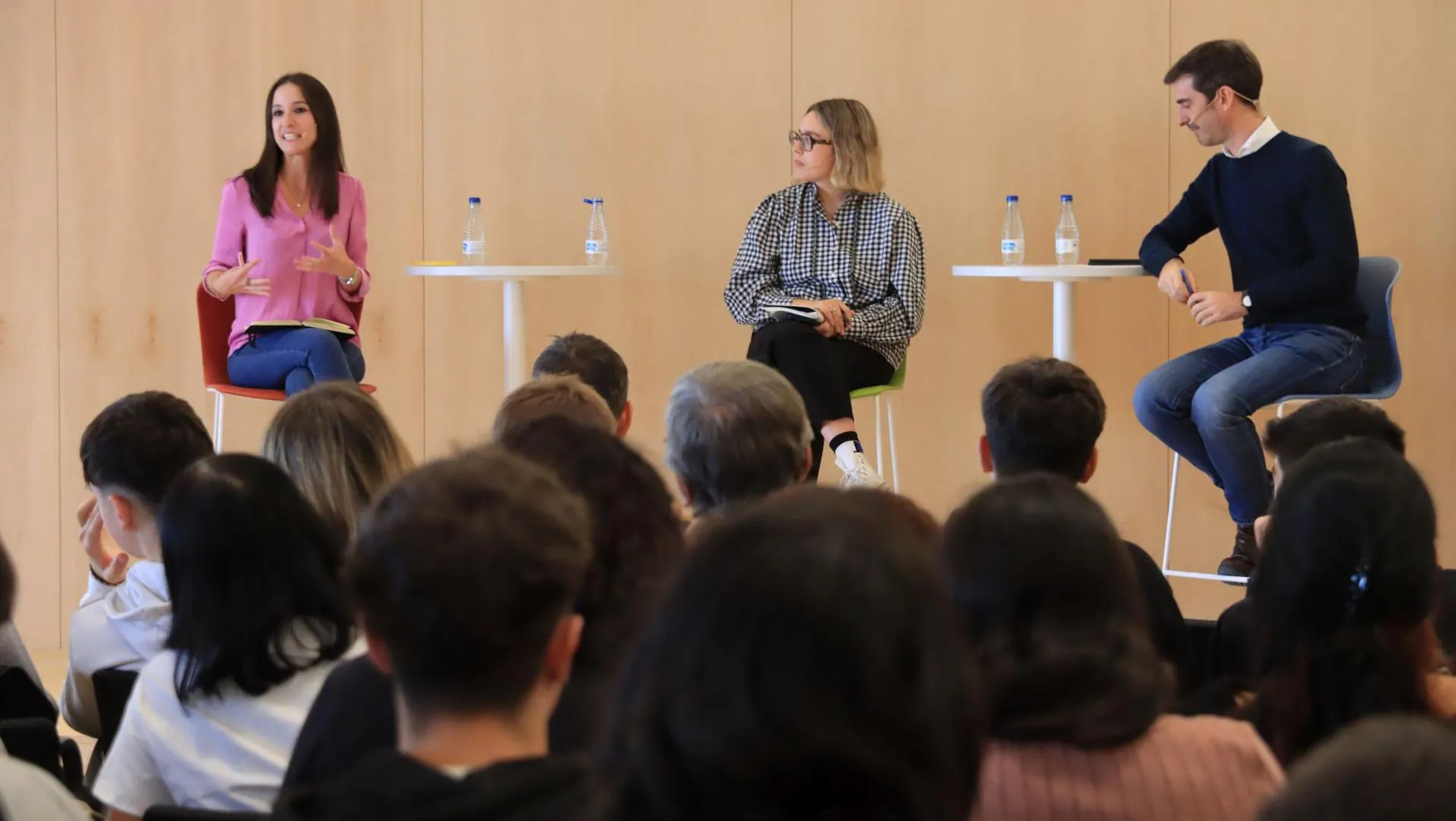Sunday, October 20, 2024, 6:10 p.m.
In such an adverse social and political context, democracy witnesses an increasingly complex political participation of citizens. This framework, which has given rise to recent studies and surveys, shows a scenario in which the involvement of young people in politics has changed in relation to previous generations.
On the occasion of the celebration of the European Week of Local Democracy, the general director of Talent for the Future, Elsa Arnáiz, moderated the meeting between two of the most media political scientists on the current scene, the professor at the Carlos III University of Madrid Pablo Simón and the journalist Estefanía Molina, who offered an exhaustive analysis of the causes and consequences of young people’s disaffection with politics.
The adolescent generation is a recurring social sector in many political studies. Since the beginning of democracy, young people have been one of the fundamental pillars for sustaining the model established after Franco’s regime, but all this has changed. They are the future voters of democracy, but their relationship with politics is cold. On the one hand, this is the first generational group whose main source of political information comes from social networks and the Internet. Pablo Simón assures that this contribution “allows us to demonstrate the change of direction in social participation and its way of interacting with reality.”
From this perspective, Professor Simón highlights the difference in social profiles that can be found among adolescents. «They are different: they are turning towards greater recognition of rights; On the other hand, they position themselves towards harder and anti-system tendencies, related to the radical right,” he details. This reality, observable throughout the West, follows patterns that reveal the relationship between political thought and the influence of social networks. For this reason, surveys show that more than half of young Spaniards between 15 and 24 years old feel disappointed with politics. This theory was evident among the audience at the presentation, where only a few young people raised their hands affirming their interest in institutional and political issues.
Along with the detachment of the younger sector of society, there is a lack of social involvement in the fight for objectives. Youth participation in political associations is below that of other surrounding countries. The lack of group involvement means that new technologies have taken their place and social networks are the instruments that young people use to inform themselves and bring together their social demands. “Young people find groups of people with the same political tendencies and thoughts on social networks.”
Surveys show that more than half of young people between 15 and 24 years old feel disappointed with politics
Whose problem is it? This is one of the questions that many political analyzes try to answer about the disaffection of Spanish youth. “This is a reality that young people have inherited from previous generations,” says Pablo Simón. Although studies show that new voters do not feel a direct relationship with what happens in government institutions, this reality is extrapolated to society in general. “This is not just a problem for young people,” says Simón. “It is a problem of society that new generations have encountered, of the lack of educational environments where they teach what politics really is,” he clarifies.
Disaffection is based on “a perception that is distant from political issues,” argues Estefanía Molina. The journalist and author of the book ‘The Political Tantrum’ describes how, since her studies on society’s involvement in 15-M to the present day, the political sphere has lost interest. “Everything you are going to experience in your life is going to be political, and it is important to begin to understand that more and more your relationship with your daily life has to do with politics,” he declared.
The polarization of recent times has generated social tension towards politics, but above all towards more radical trends that go against democracy. In this way, Molina argues the problem that some young people consider that they do not agree with democracy. For this reason, it is important to emphasize the phrase that Antonio Machado declared to the young people and that Estefanía Molina brought to the presentation, “do politics, because if you don’t do it, someone will do it for you and, probably, against you.”
Young people in the elections
2024 was dubbed the “electoral super year” due to the tight calendar of elections around the world, where 76 countries will have gone to the polls by the end of the year. Along with the elections in communities and municipalities, the importance of the European elections has been added to the elections in the US in the coming weeks.
Young people are the voters who are most interested in demographic studies. “But at the same time, the young voter is very elastic, that is, it is difficult to predict their participation,” Simón clarifies. “They tend to vote less in elections, but they are the most participatory in street protests,” he details. In the US elections, the participation and demands of young people towards the two candidates will be essential to decide the victory of Donald Trump or Kamala Harris. “Due to its importance, adolescents must be aware of the perception that social networks transmit to you compared to reality,” explains Molina.
This content is exclusive for subscribers
Are you already a subscriber? Log in
